Sustainability for Kids: pollution
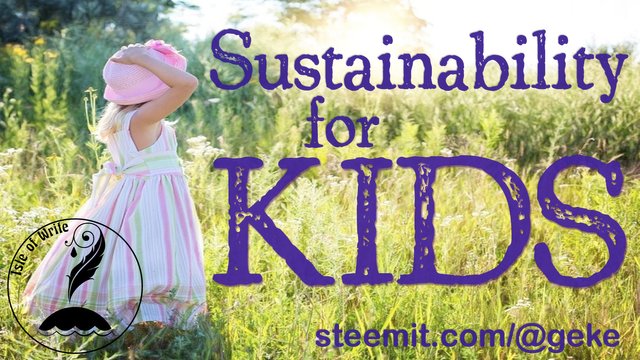
Part 1 | Part 2 | Part 3 | Part 4 | Part 5 | Part 6 | Part 7
Part 8 | Part 9 | Part 10 | Part 11 | Part 12 | Part 13 | Part 14
Part 15 | Part 16 | Part 17 | Part 18 | Part 19 | Part 20
The last installment of Sustainability for Kids showed that capitalism isn't causing overconsumption. Capitalism is a system based on saving money that promotes competition between firms. Instead, it's the government's economic policies that are causing overconsumption.
But we've also talked about how corporations often push their own employees through Washington's “revolving door” to influence which laws are passed. So although it's true that big business is behind many policies encouraging overconsumption, it's not business using capitalism. It's business using the government, an entity that punishes saving money and passes laws to reduce competition.
Corporations have been using the federal government for protection since the federal government was created in 1789. One way for the government to protect a company from competition is to use regulations to penalize their competitors. Let's look at one example of this, and how environmentalists can be duped into supporting big business.
In the 1990s, a plan was created to reduce global greenhouse emissions. It was called the Kyoto Protocol and it was adopted in Japan in 1997. The plan seemed like a good idea and gained a lot of support from environmentalists.
But it also gained a lot of support from big business. That might seem strange because the Kyoto Protocol would be forcing businesses to reduce emissions. That's expensive. But one of the biggest supporters of the Kyoto Protocol was an energy corporation known as Enron.
Most people remember Enron for the accounting scandal that bankrupted them. But before the company failed, Enron was in the habit of lobbying the government to pass regulations that helped their business.
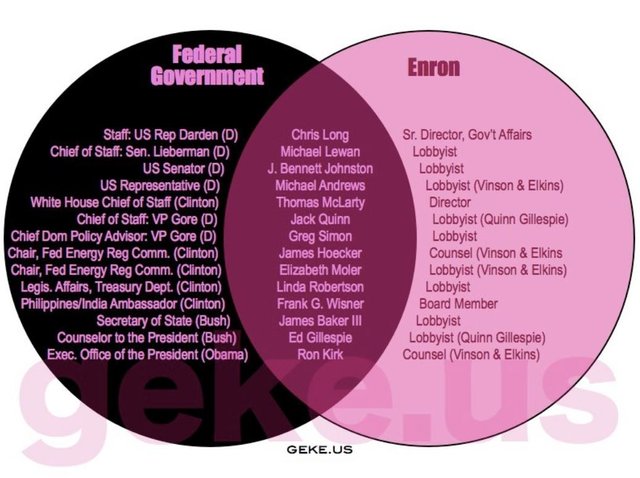
For example, the Clean Air Act of 1990 had placed a limit on how much sulphur dioxide a company could emit. On top of that, the government's Environmental Protection Agency (EPA) started a program where companies could essentially “buy” the ability to pollute our air with sulphur dioxide.
This was called a cap-and-trade program. The government placed a limit, or cap, on how much pollution could be emitted. Each company would be allowed to pollute that much. But a company that emitted too much pollution could buy “allowances” from a company that was polluting less.
This program means companies will still pollute our air, but it now allows other companies to profit from that pollution.
Most people can see that this program wouldn't do much to stop pollution. But the program did enrich the Enron corporation, because Enron developed a lucrative market for pollution allowances to be traded between companies. And because this was such a successful money-making market for Enron, they saw a similar opportunity for creating a cap-and-trade market for carbon dioxide (CO2) emissions when the Kyoto Protocol was passed.
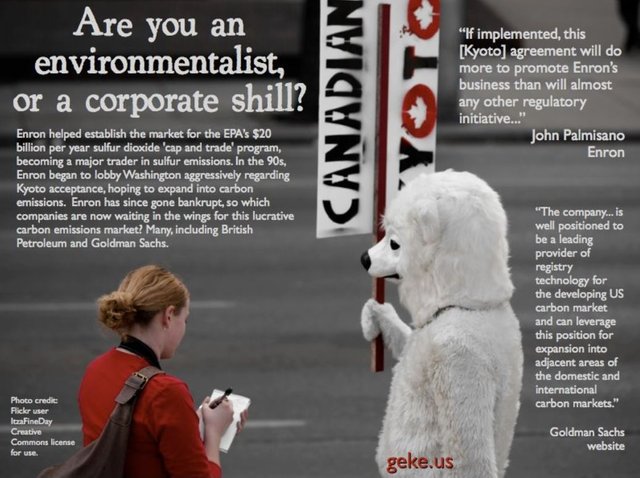
Like the Clean Air Act had put a national cap on sulphur dioxide emissions, the Kyoto Protocol would put an international cap on carbon dioxide emissions. So Enron lobbied the government to pass the Kyoto Protocol. And an internal Enron memo written by John Palmisano shows us two things: how government regulations often benefit corporations, and how Kyoto, in particular, would benefit Enron: “If implemented, this [Kyoto] agreement will do more to promote Enron's business than will almost any other regulatory initiative.”
If we really care about the environment, we need to stop supporting pseudo-environmental programs that are designed and implemented by corporations that profit from pollution. These programs don't help the environment, and many of them wouldn't get passed without the broad support from environmentalist groups. Instead, we should follow the money to see if the government is trying to help the environment or if it's trying to help the corporations that are staffing the Environmental Protection Agency.
This article is one of a series I'm writing for the 30 Day Writing Challenge hosted by @dragosroua. If you want to join, write on a topic that interests you or that you'd like to learn more about and use the tag #challenge30days. As Dragos says, "The key word sequence here is: "write every day."

Think you'd like to wash up on our shore?
The treasure map will bring you right to our door!
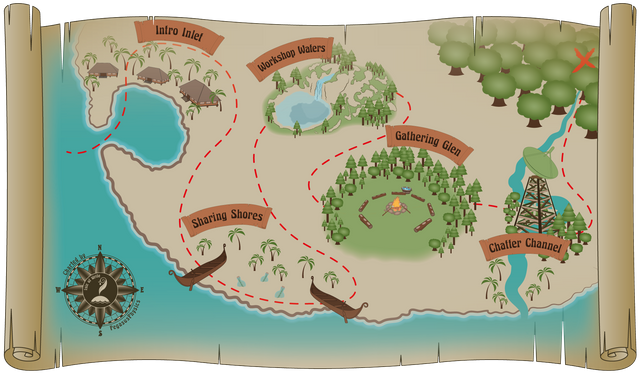
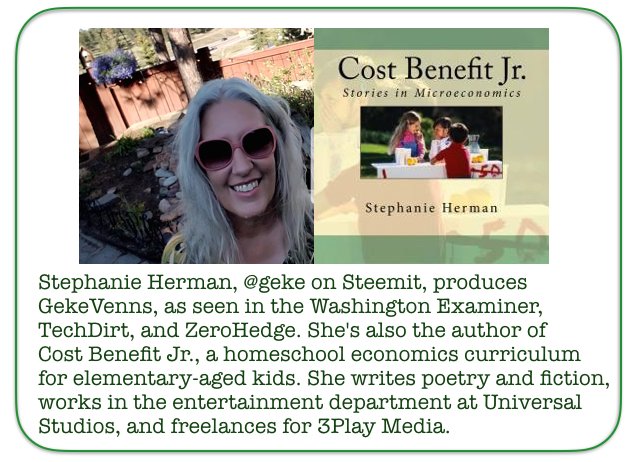
@geke wow good information.excellent post. Good stuff my man, love the style mash ups, it really worked well!
Great campaign, hope you always succeed.
most excellent post, good job, thanks for shar
I wish you are very successful. Very good post and important message
Big business and government become dangerous when they mesh together. Is there a way out?